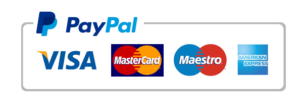Day of Social Justice
Praxis Assignment – Day of Social Justice
Social justice is “the fair and equitable allocation of bargaining powers, obligations, and resources in
society” (Nelson & Prilleltensky, 2005, pp. 65). For my social justice day, I operationalized this term as
contacting as many people as I could, within a 24 hour period, to ask them to vote against Proposition 8. I
chose this because marriage brings with it many resources, such as access to health care, social security,
and retirement benefits for partners. Having one group of people systematically unable to access these
kinds of resources is not fair or equitable, and therefore, not socially just.
I began my day by volunteering for a local phone bank for 3 hours. I was calling people in the
northern California central valley area. I thought it was important to call people who weren’t along the
coast because I thought more people would already be against Prop 8 in the coastal regions. I also decided
to strike up a conversation about Prop 8 with everyone I talked to on this same day.
When I was phone banking, many people hung up on me, but some were receptive and sympathetic.
One woman told me I was going to go to hell, but others told me to keep making calls and that this was an
important issue. I went back and forth between feeling defeated and energized. I made sure to end the day
on a positive call, even though it meant staying an extra 10 minutes. I had more difficulty when talking to
people face to face. I don’t normally talk about politics with my friends. I was surprised by my
stereotypes of who supported and who was against Prop 8. Also, a few friends assumed that my talking
about Prop 8 meant that I was queer but was not out. One friend teased me by calling me a slur. I went
back and forth in my mind, and finally told this friend that I was talking about Prop 8 for a class
assignment. I think I felt too threatened to let it go.
The day of social justice me was different from the everyday me because I made it a point to talk
about something political (Prop 8) with everyone that day, and I did phone banking, which I had never
done before. I was uncomfortable talking with some of my friends and I found myself avoiding certain
people because I didn’t want to have the conversation with some of these people (including my dad). It
was easier to talk to some people than others. For example, talking to people in a class where we had
talked about LGBT issues was easier than talking to people on the shuttle. I had a connection with my
classmates, created by certain situational factors (what had been covered in class). This leads me to
believe that if I were in situations where I talked about political issues more often, it would become easier
to talk about political issues with at least this subgroup of people. Also, because I’m straight, this issue
does not directly affect me; that makes it easier for me to ignore it. Given that I’m not very politically
active (but I do vote!), this is a situational factor that creates a difference between the regular me and the
social justice me.
I can’t easily say if the benefits outweigh the costs of being the “social justice me.” For one, I was
avoiding certain people, who I do consider to be my friends. That is a cost to me because I like my
friends. On the other hand, it felt good to call people and help them to become more informed about Prop
8. I was able to dispel some myths and a few people told me that they would re-think their positions!
When considering benefits and costs, I need to think about the question, “To whom?” I was
uncomfortable in some situations, so there was a social cost to me and maybe my friends. On the other
hand, if talking more openly about these issues would mean fewer votes for Prop 8, then that would be a
benefit to the LGBT community as well as our society at large. So, in sum, there were more costs for me
but more benefits for society.
This exercise relates to my privilege and accountability because I am straight. It should be part of my
responsibility to talk to people in straight communities about these issues. I can’t expect the LGBT
community to educate everyone straight, so this is an act of solidarity. Even so, there were people I chose
not to talk to, meaning that I wasn’t ready to fully challenge myself. I never put myself in a position
where I thought many people would assume I was queer, call me names, and ridicule me because of it.
Overall, I must remember that with privilege, comes accountability.
Do you need a similar assignment done for you from scratch? We have qualified writers to help you. We assure you an A+ quality paper that is free from plagiarism. Order now for an Amazing Discount!
Use Discount Code "Newclient" for a 15% Discount!
NB: We do not resell papers. Upon ordering, we do an original paper exclusively for you.


